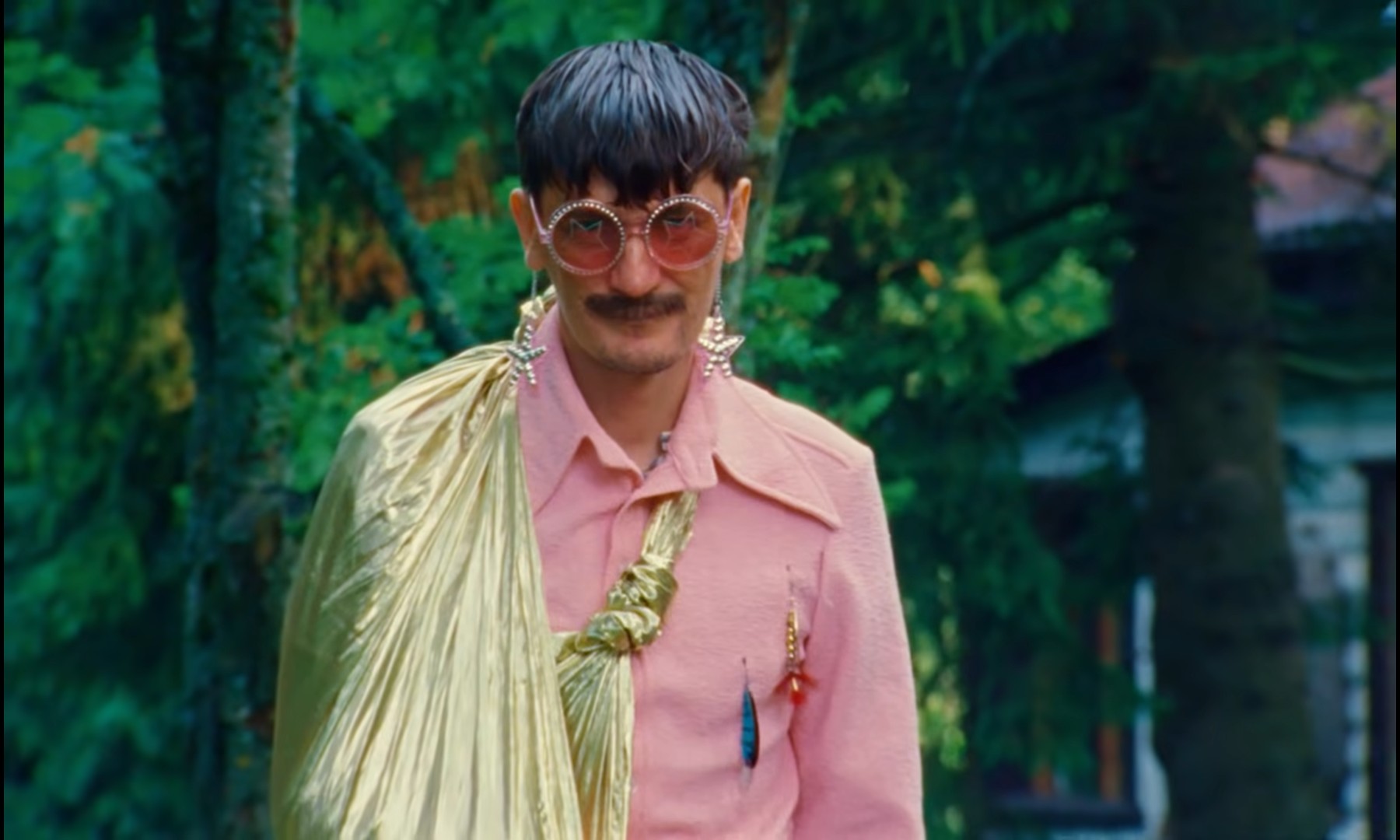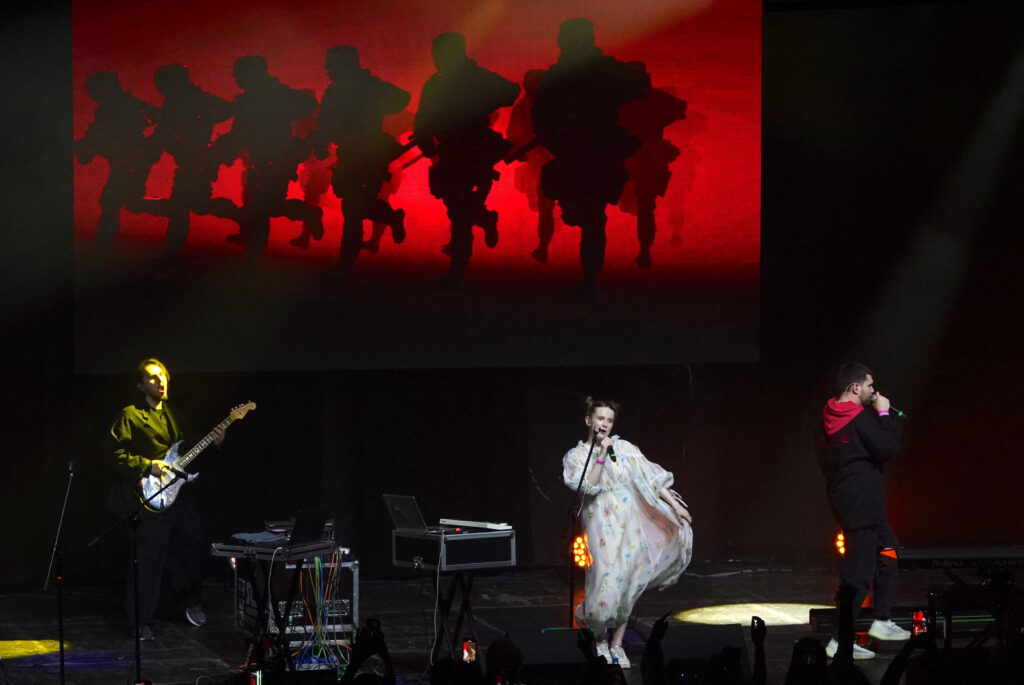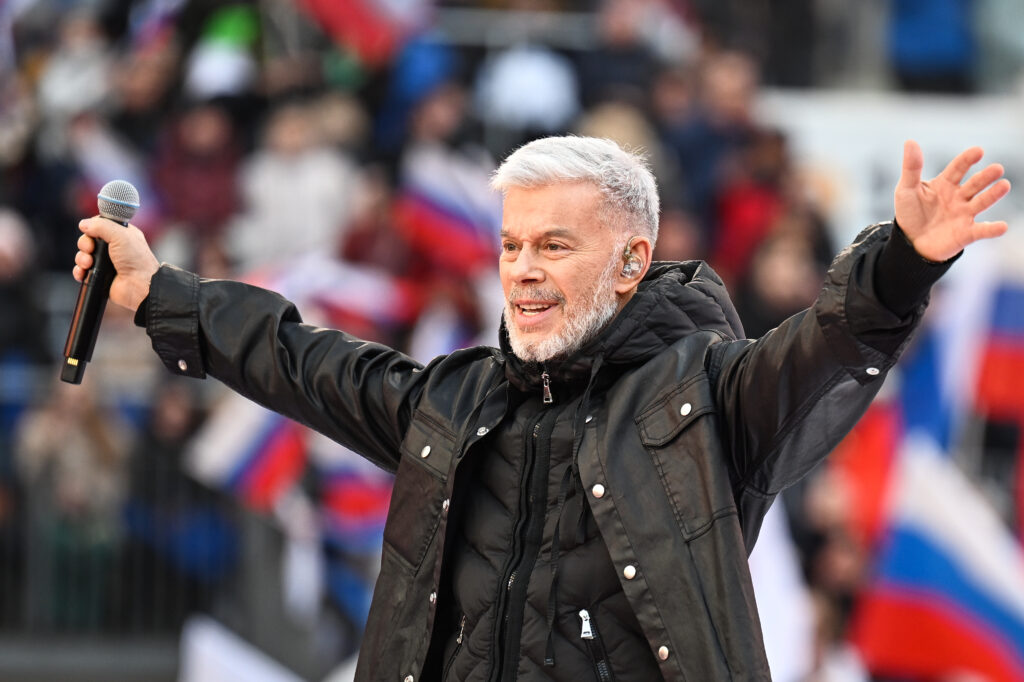A series of events in the early 2020s indicate that the new decade will see the normalisation of Russian queer culture and the privatisation of transgressive aesthetics by the cultural mainstream. In November 2019, Ksenia Sobchak invited gay Russian celebrities to an open discussion on gay culture titled ‘Six Gays and Sobchak’ on YouTube. The April 2020 Russian issue of Tatler magazine featured a transgender star (Natasha Maximova) on its cover. In late June 2020, Karen Shainyan’s documentary Svyashchennyi russkiy kvir (Sacred Russian Queer) was released on YouTube, while the dramedy Chiki (written and directed by Eduard Oganesyan), featuring the theme of gender transgression, has become the best series of the summer of 2020.
The first queer revolution in post-Soviet Russia took place in the 1990s. It was precisely then that Timur Novikov established the first post-Soviet artistic queer community, the New Academy of Fine Arts in St. Petersburg. This golden and already semi-mythical age of the Russian queer includes ideologically and aesthetically completely different cultural phenomena: the gay art of Georgy Guryanov, the drummer for the band Kino; the first raves at Fontanka 145; the diverse activities of Slava Mogutin, a journalist, writer, photographer and member of the National Bolshevik Party; queer performance by Vladislav Mamyshev-Monroe; Sergey Penkin and Boris Moiseev’s variety shows; the new-culture avant-garde magazines Om and Ptyuch; the pseudo-queer band t.A.T.u. and their worldwide hit ‘Ya soshla s uma’ (I’ve Lost My Mind); and the music video ‘On tebia tseluet’ (He’s Kissing You) by the band Ruki vverkh (Hands Up) featuring the famous drag queen Anatoliy Evdokimov.
Today’s tendency to look to the past and the cult of the 1990s in fashion, art and music is directly related to the queer turn of our times. Gay visuality was dominant in the pop culture of the first post-Soviet decade, the era of sexual revolution. It is precisely this aesthetic and ideological vision of that time of ‘total freedom’ which has been most successful in competing with the official version of the ‘roaring nineties’.
There is a significant difference, however, between the gay revolution of the 1990s and the queer renaissance of the 2020s. In the 1990s, rights of sexual minorities were not a relevant agenda in Russia. Hence, gay communities of the time were mostly apolitical and sought to preserve their autonomy. For Generation Z, the global future is associated with new ethics, the political struggle for recognition of nonbinary genders and against gender-based, racial and sexual oppression. So, queer culture is becoming an interesting ideological and commercial resource for cinema and show business, mass media, and the music and fashion industries. At the same time, Russia’s conservative electoral majority perceives queer culture as a ‘Western’ threat to the sexual sovereignty of the nation. Hence, the regime and loyal cultural elites are tasked with containing and neutralising the threat by framing it in a patriotic/populist context.
Mark Fisher, a British philosopher and theorist of culture, analysed the phenomenon of an alternative culture’s absorption by post-industrial capital and the incorporation of nonconformism into the manageable mainstream in his book Capitalist Realism: Is There No Alternative? (2009). According to Fisher, neoliberal capitalism is obliterating utopian imagination. Consequently, the image of the future (it ‘colonises the dreaming life’), is not creating new culture but living off the old one, turning any authentic cultural phenomena into a museum of ghosts and dead exhibits: ‘In the conversion of practices and rituals into merely aesthetic objects, the beliefs of previous cultures are objectively ironized, transformed into artifacts’.
Today, we are witnessing the transformation of the queer nonconformism of the 1980s and 1990s into an investable asset and safe capital. Back in the 2010s, Gosha Rubchinskiy’s collections were publicised by the global wave of popularity of queerified post-Soviet aesthetics among zoomers (Generation Z), while the Little Big band is now successfully employing the aesthetics of transnational neo-camp. However, the general public associates the production of the current queer discourse with the name of Alexander Gudkov. He is the main creative ideologist behind modern Russian pop culture, showman, actor, TV presenter and one of the scriptwriters of Comedy Woman and Viecherniy Urgant (Evening Urgant), the leader of the ‘Chicken Curry’ YouTube team (2.42 million subscribers), and the producer of popular online comedy shows with an audience of millions. His name appears as a scriptwriter or creative producer in the closing credits of recent megahits like Philipp Kirkorov’s ‘Tsvet nastroyeniya siniy’ (The Colour of the Mood Is Blue) (more than 61 million views) or Dima Bilan and Polina’s ‘Pyanaya Lyubov’ (Drunk Love) (nearly 18 million views).
Gudkov’s style is a synthesis of irony and a new form of sincerity (post-irony), camp, media archaeology, queerification of the Soviet visual legacy and a style reminiscent of Soviet and early post-Soviet television programmes and music videos. For example, the 2018 New Year’s Eve RBK Style video ‘Prazdnichnyi efir na sirenevoy lunie’ (Festivity on the Lilac Moon on Air, 1.2 million views) resembles the style of a Soviet programme from the 1980s.
The first queer remakes of Soviet films were made back in the 1990s by Vladislav Mamyshev-Monroe, Timur Novikov and other New Academy artists. A photo exhibition called ‘Russkiye voprosy’ (Russian Questions) (curated by Ekaterina Andreeva, Russian Museum, 1997) is worth noting. The exhibition presented queer remakes of Soviet fairy tales for children such as ‘Kammennyi Tsvetok’ (The Stone Flower), ‘Morozko’ (Jack Frost) and others. Gudkov continues this neo-academic tradition of media archaeology and does a lot of work with Soviet readymades. In December 2018, for example, he wished everyone on Instagram ‘Happy New Year 1959’ in the guise of the main protagonist from the fairy tale ‘Morozko’.
Many of Gudkov’s videos can be used to illustrate Mark Fisher’s thesis about the ghostological, hauntological nature of modern culture. The 2019 Tectonic ‘musical dramatic novella’ (3.3 million views) featured fading actors looking for gigs (played by Gudkov and Ekaterina Varnava). They dance the nostalgic ‘tectonic’ dance of the noughties for money in a posh by-invitation-only club where they fall victim to rich old vampires. Gudkov’s video ‘Pro belyie rozy’ (About White Roses), shot for Dima Bilan in 2019 (8.6 million views), is also clearly built on Fisher’s concept of hauntology and reflects the retrospectivity of our times – a retrospectivity in which hopes for a better future (‘white roses’ and ‘yellow tulips’) suffer the same fate as analogue Minimoog synthesisers. The principal female character, a provincial bureaucrat who likes to say ‘To a future without the 1990s’ and the initiator of the demolition of the Metallurg community centre where she used to dance at discotheques, starts hearing the music of her youth and seeing her favourite singer everywhere. A sorcerer (Gudkov) and a priest fail to drive the ghost out. Relief comes only after she kisses the past.
Cream Soda’s ‘Nikakikh bol’she vecherinok’ (No More Parties) (2019, nearly 12 million views), written by Gudkov, who also starred in it, can serve as a good example of how queer entered the cultural mainstream. In the music video, three men go to the woods under the pretext of going fishing. They hold a queer party in an abandoned barn instead, dressing up in feathers, satin and high heels. The avant-garde trick here is to mix the aesthetics of the conservative imperfection of the silent majority, a method popularised in the 2010s by Sergey Shnurov and the band Leningrad in their music videos with their characteristic ironic gay visuality. In this way, it is precisely Gudkov who can be regarded as the main ideologist of queer populism. The folk character of this music video is created not only by the location (somewhere out in the sticks of Russia) but also by the iconic actor Alexander Bashirov (films Assa, Igla (Needle), Gruz 200 (Cargo 200)). Bashirov’s character is handed over by queer tricksters to a mermaid as a gift in order to get fish to give to their wives as proof that they were actually fishing.
The music video ‘Plachu na tekhno’ (I Cry When I Hear Techno, more than 30 million views), shot by Cream Soda during the April 2020 lockdown for the song by the band Khleb (Bread), is dedicated to ‘all cancelled parties’. In this video, quarantined ravers locked in their apartments go out onto their balconies wearing nightclub-style clothes. In a state of delirium, they dance vogue, the dance of gays and drag queens Gudkov himself is dressed as a female figure skater in the video. The quarantine balcony becomes a symbol of the visibility of the queer in Russia in 2020, the newly emerging public space for people who are ‘coming out of their closets’ (or a barn, in the case of Cream Soda).
The queer balcony is also featured on the cover of NILETTO’s new album ‘Prostym’ (I’ll Be Simple). NILETTO (Danil Prytkov) became a megastar in 2019 after the release of his song ‘Lyubimka’ with its ambiguous lyrics and abundance of musical quotations. The video for this composition released in January 2020 (more than 162 million views on YouTube) was shot in a retro-style evoking the visual style of hits of the 1990s— primarily the music video ‘Kroshka Moya’ (My Baby) by Ruki vverkh with its characteristic clear homoerotic populist military aesthetics.
On one hand, the ‘popular queer’ developed by Gudkov and his followers draws on the legacy of Soviet variety entertainment and pop culture of the 1990s or the homoerotic potential of Gopnik and military aesthetics. This contributes to the greater visibility, normalisation and popularisation of queer discourse. Anti-gay propaganda music videos in line with the official agenda (such as the video ‘Gey na perederzhke’ (Gay for a Temporary Stay) released in the run-up to the 2018 election or a video about the adoption of a boy from an orphanage by a gay couple released before the 2020 vote on the constitutional amendments) look like outdated statements against the backdrop of Gudkov’s music videos with their meta-jokes and self-mockery. This is like the way the official Soviet narrative was received against the backdrop of perestroika’s new culture. However, the mass production of queer visuality as a new norm and new natural order appearing even on Channel One also frames queer populism as a neoliberal entertainment industry. The proliferation of popular music videos characterised by post-ironic gay aesthetics, entertaining and safe content, the appropriation of resistance practices through their stylisation and the carnivalesque marginalises the existing queer protest in Russia and ultimately depoliticises the once avant-garde territory of the search for a new future.
The article was written within the framework of the research project “Visuality without Visibility: Queer Visual Culture in Post-Soviet Russia”, Swedish Research Council, No. 2016-02341










